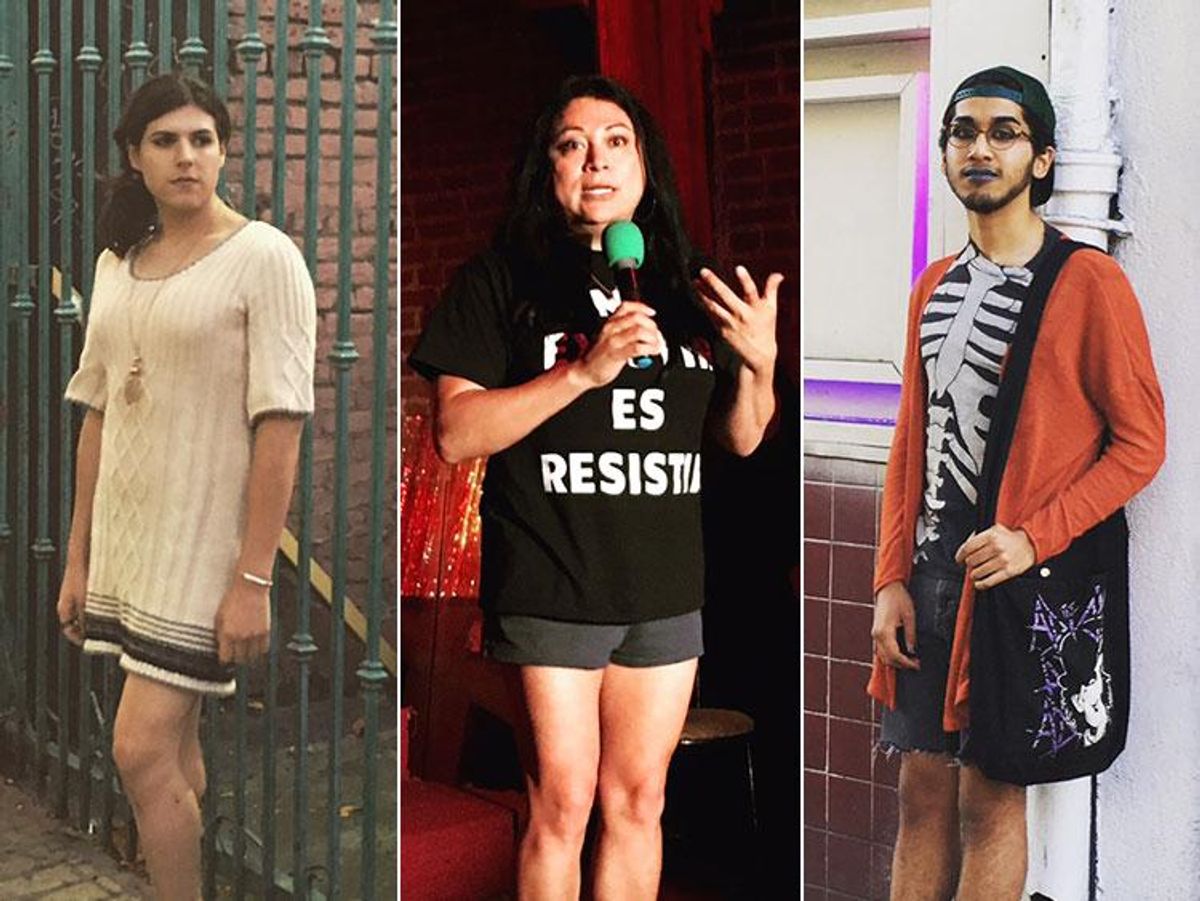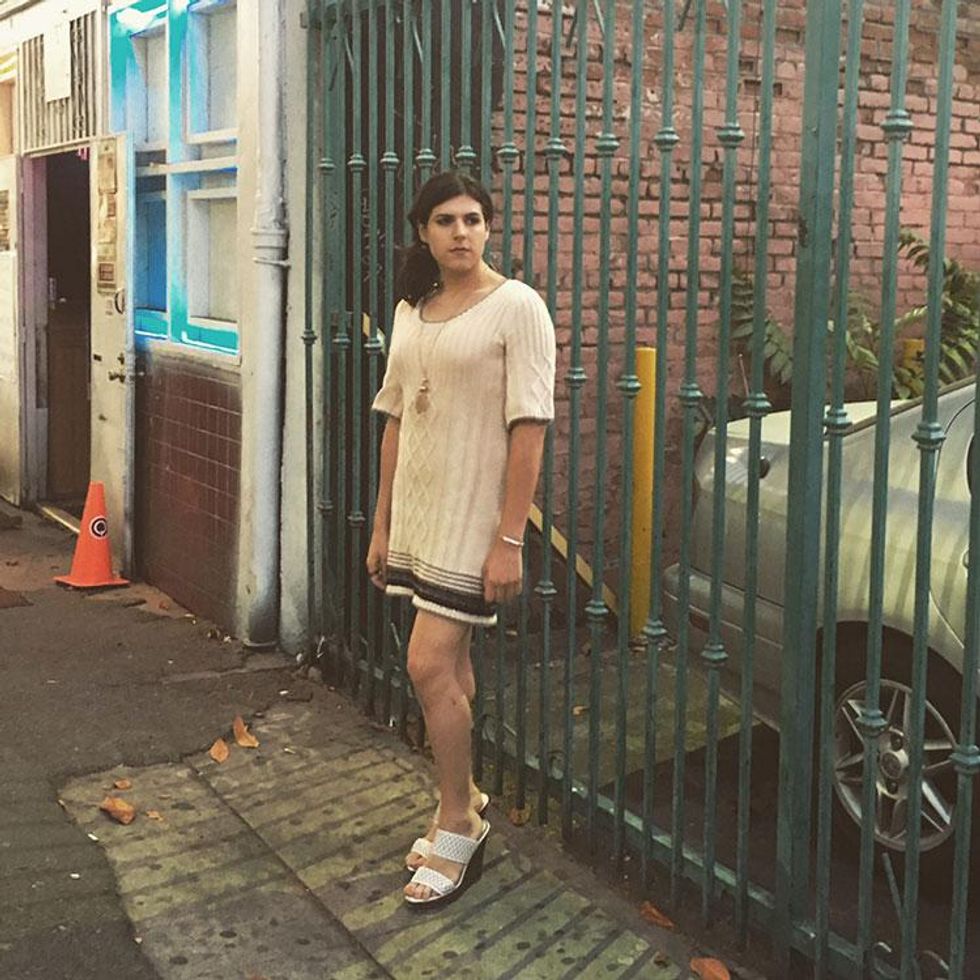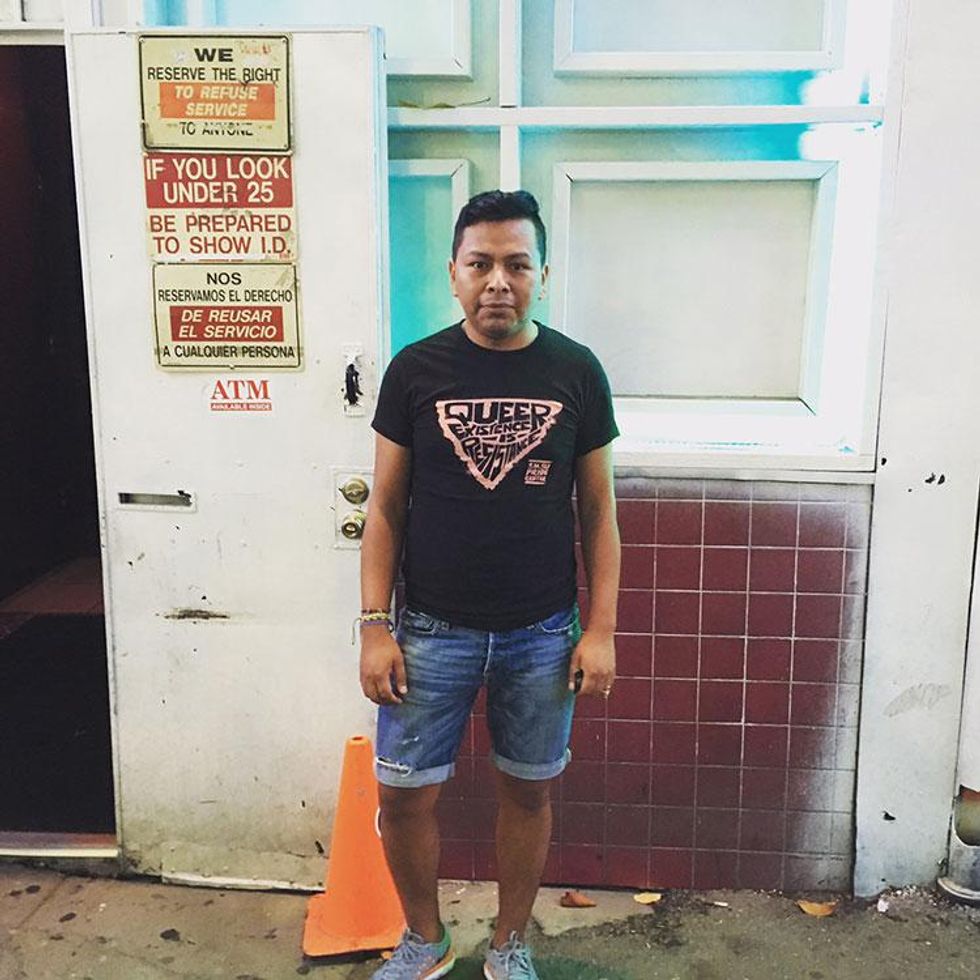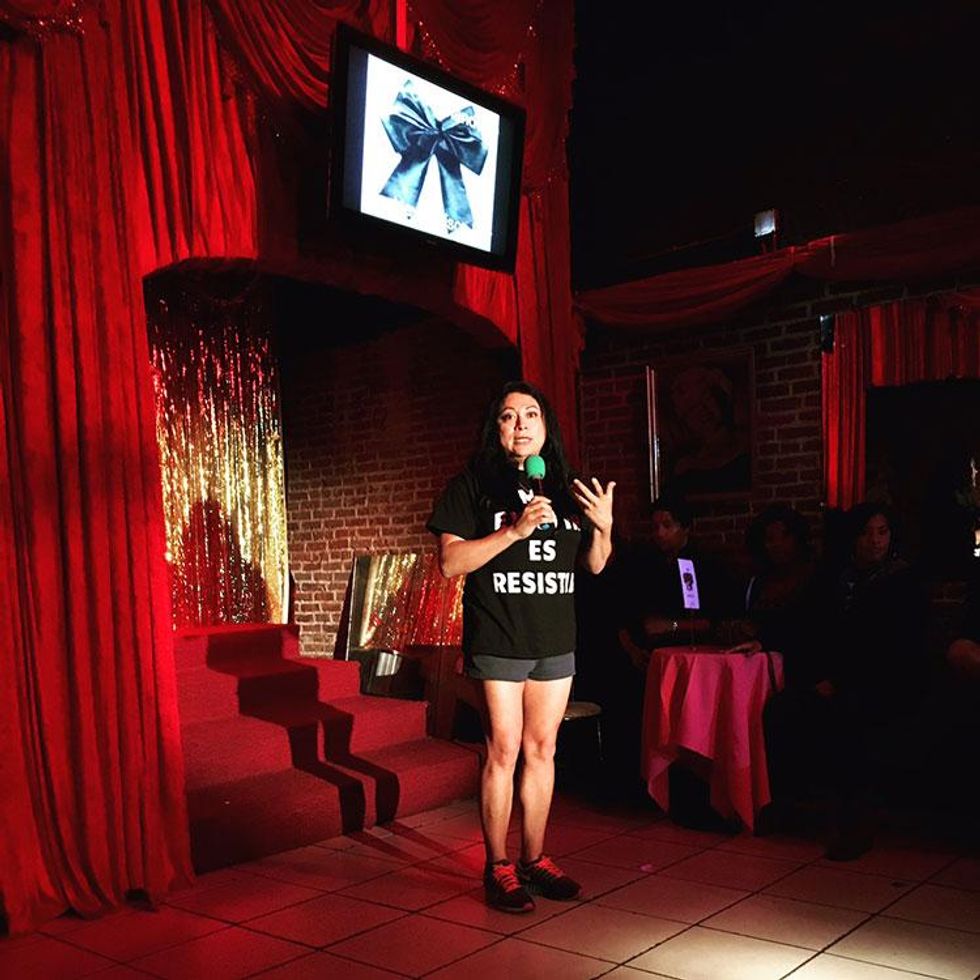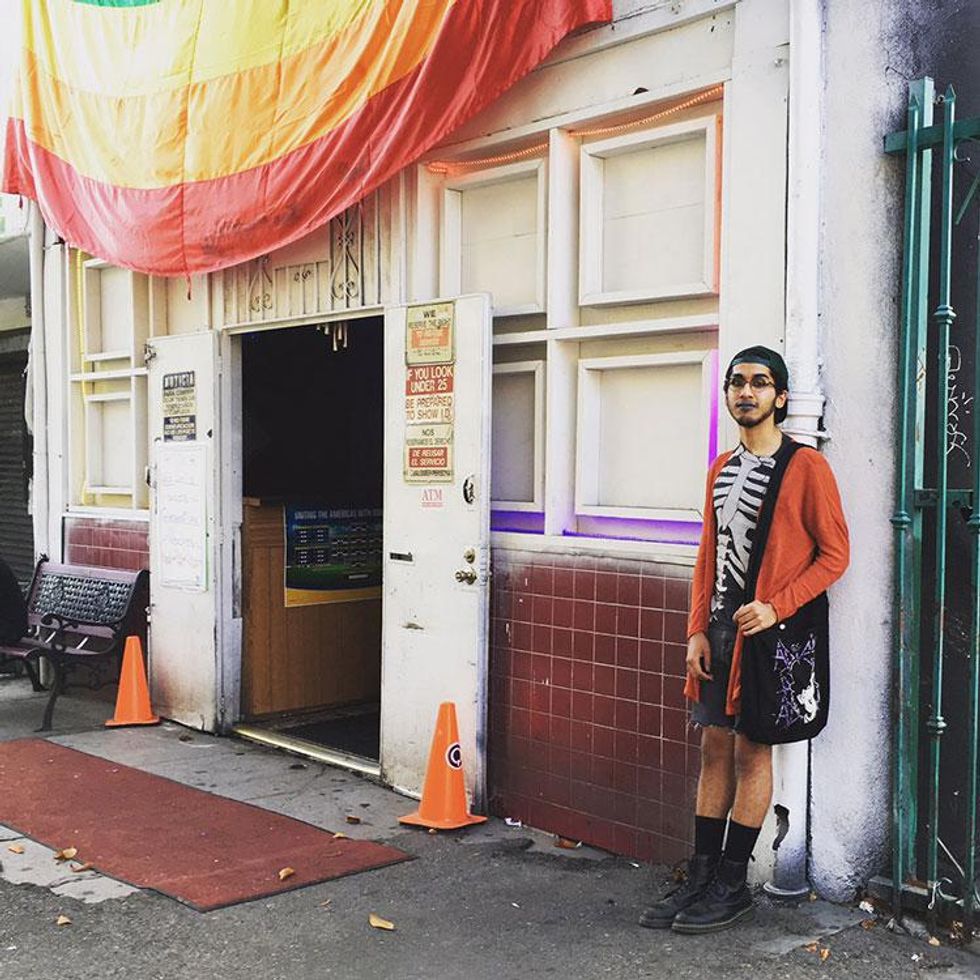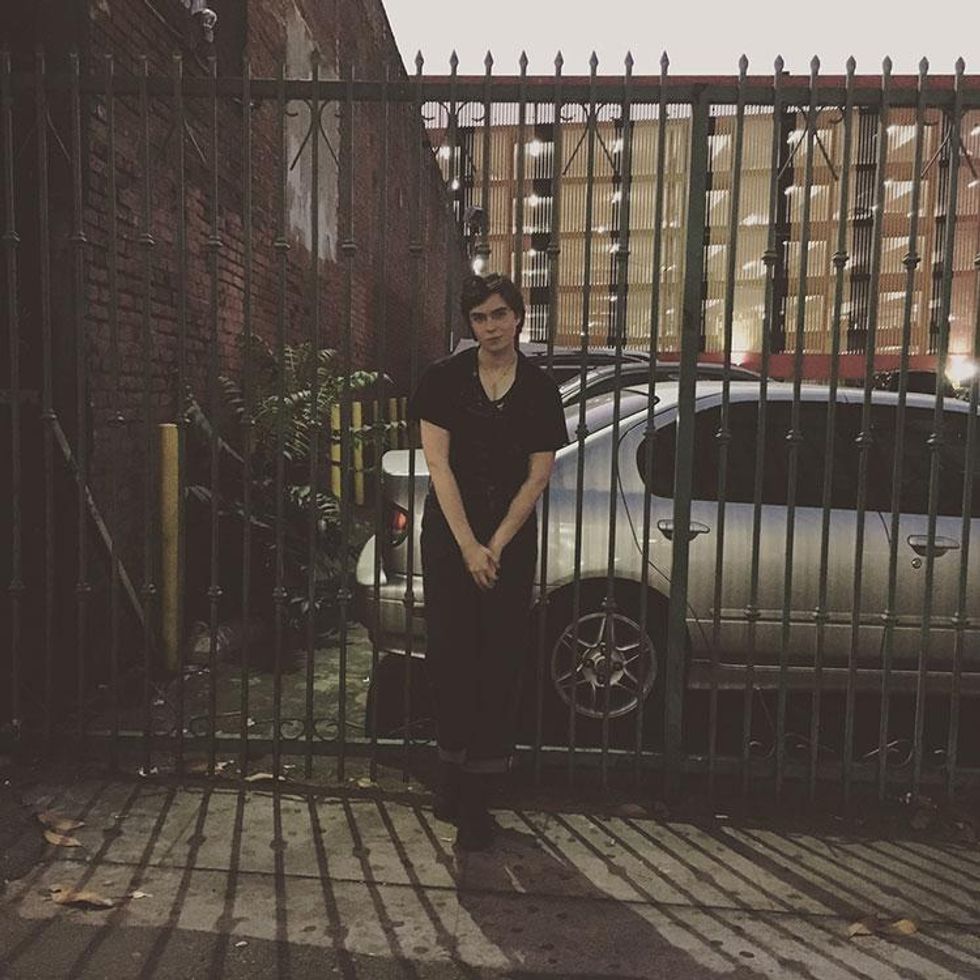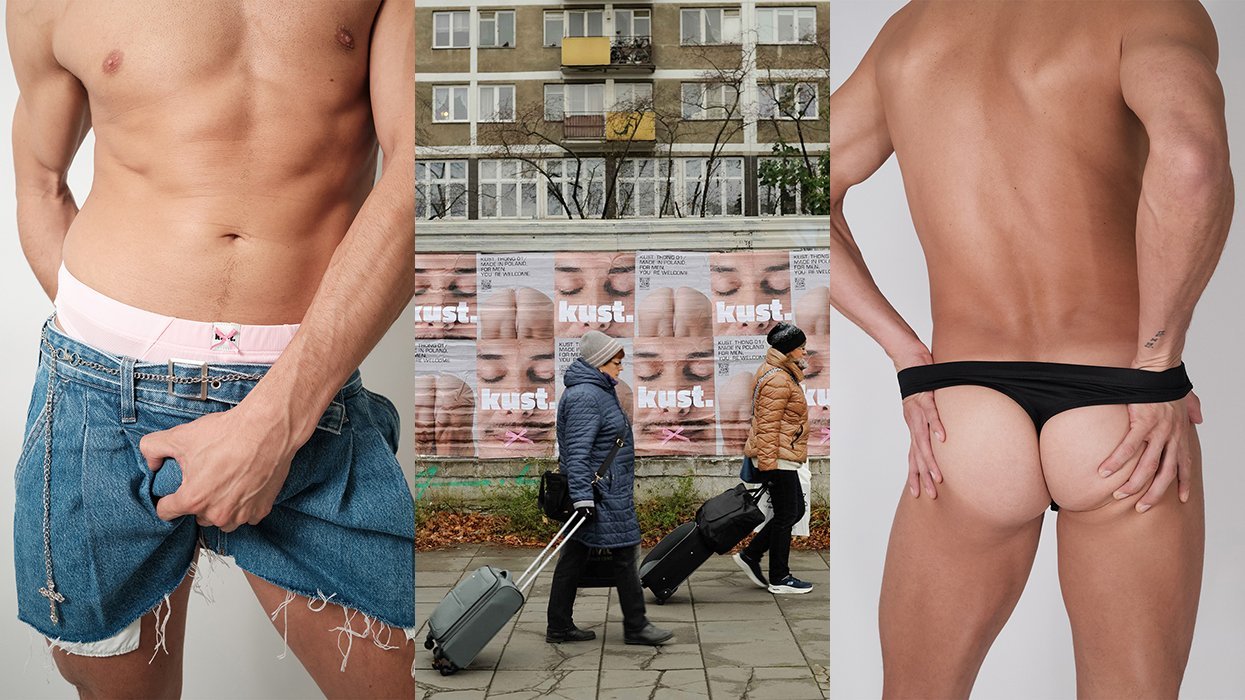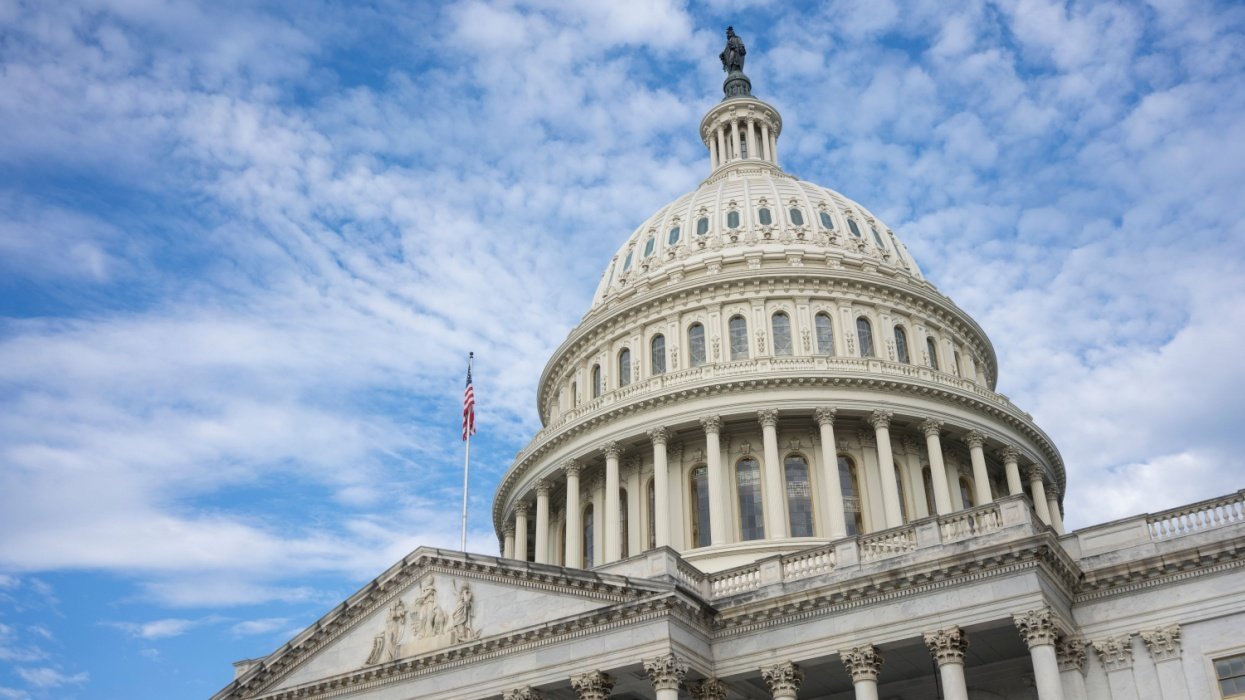"Should we all go in together?" said one activist, as the crowd made its way inside the New Jalisco Bar, to tables near the stage, where a TV monitor above the dance floor played Cristian Castro's "Volver a Amar" video.
Another activist walked in wearing a T-shirt reading,"Mi Existir es Resistir." But that's not just a T-shirt or a slogan, said Bea Esperanza. To be queer, trans, and "Latinx" -- a gender-neutral identifier used by many Latinos -- means knowing "our survival is revolutionary; our survival is resistance."
Esperanza was one of many queer activists and allies gathered at the gay Latino bar in downtown Los Angeles on the evening of the deadliest mass shooting ever in the United States, to mourn the 49 victims and the 53 wounded at Orlando's Pulse nightclub on its Latin Night.
Esperanza, 24, a trans activist and organizer for Familia: Trans Queer Liberation Movement, was on the phone only hours after the tragedy, talking to a friend from Florida who broke down while recounting how hard it was to hear the news about Pulse because of the bar's special role in the LGBT community.

"It wasn't a West Hollywood-type gay bar; it was in the hood, it was small, and everyone was there," Esperanza's friend told her. Four of his friends who were working at the bar that night were still unaccounted for at the time. "Everyone was there: not just LGBT folks, but cis and straight folks from the black community, the Latinx community, the Jewish community; everyone felt welcome there."
Hearing her friend describe the Pulse community reminded Esperanza of a place close to her own heart.
"Sitting here in the New Jalisco Bar, which for me as a queer and trans Latinx, it becomes very real for me that these are our community spaces," Esperanza said. "Often as queer and trans people, but especially as queer and trans people of color, we don't have spaces to come together in community, so clubs and bars have been so important to us, where we can be around people that look like us, that live like us."
When the names of the victims were released by the city of Orlando, one thing stuck out to Jorge Gutierrez, codirector of Familia: Trans Queer Liberation movement, which organized the event: "I was looking through all the media pieces that have gone out today and I was like, it's almost as if the LGBT Latino community is nonexistent."

(RELATED PHOTOS: Queer and Trans Activists Exist in Solidarity)
This event could have been held anywhere: a coffee shop, someone's house, or a quiet restaurant with space to accomodate a large group looking to reflect. But it was important for Familia to "bring the politics to the dance floor" at Jalisco because, said Gutierrez, "this is where people speak our language," pointing into the white double doors that lead into the bar. "People that work here look like my mom, look like my tia, and to us that's really important, to be in company with folks that look like us."
June is a meaningful month to LGBT people for a lot of reasons. It is national Pride Month; the anniversary of the Stonewall riots. It's the one-year anniversary of the Supreme Court's ruling for marriage equality. And for Jennicet Gutierrez, who was also at Jalisco on Sunday night, it has been one year since she interrupted President Obama's remarks during a Pride reception at the White House.

"I spoke up and challenged President Obama on the violence that trans women are facing, especially inside immigration facilities, and this is what's happening, right?" said Jennicet Gutierrez from the dance floor at Jalisco. "We had a victory in marriage equality, but for us, it's not really a priority, and now we are seeing the backlash with so much anti-trans legislation throughout the nation and the killings that are happening to trans women -- black and Latinx -- to this horrendous tragedy."
Those present at the event recognized the importance of "holding space" and finding light in a day full of tragedy. The event started off with two drag performances. For the duration of the show, no one looked at their phones or read articles with horrific details about the shootings; they were living in the moment, laughing, clapping, and some in the crowd felt lively enough to dance when Whitney Houston came on singing "I Wanna Dance With Somebody."
"These clubs are sanctuaries for us," said community organizer Jorge Gutierrez. He doesn't show up to Jalisco just to dance, he said, but rather, he sees it as a space "where a lot of us can be our true selves."
What transpired in Florida is "not going to tear our community apart; we are going to continue to come together, and build together and continue to organize and to end all of this violence that's happening because we know it's not just about gun violence," said Gutierrez, passionately.
Johnny Pimentel, 19, was invited to the event at Jalisco by a friend, the organizer, Esperanza. They have a hard time believing safe spaces exist, especially as a person who identifies as nonbinary and uses the pronouns they/them, because they face the threat of violence every day when going outside at night wearing makeup or dressing "a certain way."

In the process of being interviewed outside the bar about whether Pimentel felt safe going to gay spaces in the future, given what took place in Orlando, a man walked by, mocking them, and repeated the phrase "gay bars," in a sarcastic tone, scoffing, before walking away.
Pimentel seemed unbothered by it because those comments come "24/7."
"That's how it is in Boyle Heights, that's how it is in all these areas that aren't middle-class or upper-class," said the 19-year-old. "No matter where I go, you're going to feel that tension, you're going to feel that otherness no matter what, so the way I see it, is it's like, you pick and choose; you take risks by going to these places, knowing that you might deal with shit, knowing that you might encounter people that are ignorant, but is it going to stop me from going to events? No." Pimentel spoke defiantly, though they did admit, "This heightens it a little more."
Activists at the event were worried that the media would gloss over the Latino identity of the victims in the deadly shooting. At the time, only seven names had been revealed to the public, and all of them were Latino. Since then, 49 names have been released, but the victims list contains an overwhelming amount of black and Latino men and women.
In an interview with The Advocate,GLAAD president Sarah Kate Ellis said there are "many narratives out there right now and I want to make sure that that one is out there at the top of the list ... people are also putting together the pieces in real time and that's our job that we're representing our community, that that was a Latino night, that there were LGBT people there and allies there, and making sure that that is part of it."
Jorge Gutierrez of Familia said he hopes people don't erase the identities of those who died. "One thing to remind ourselves is that this is a moment; the stories, the narrative, the voices need to be centered around the LGBTQ Latino and black communities."
During an intermission for the drag performances, Jennicet Gutierrez asked attendees to share any thoughts they had about Orlando. Rocio Durcal's cover of "Amor Eterno," the somber ballad written by Juan Gabriel, the divo of Mexican pop music, played before several people took the stage to offer their messages of support.
Behind Jennicet Gutierrez, a TV monitor displayed solidarity with Orlando in a photo of two men kissing with the words "LA loves Orlando." Seeing two men kissing in Miami is supposedly what set the shooter off on a rampage to kill gay people.
Esperanza wants people to realize that for those in the trans community, violence is a constant threat. "This is not an isolated incident," she said. "This happens to us all the time and it's because our bodies and our lives are constantly devalued in this society and in our culture."
"I'm still processing all this pain," said Gutierrez, "and being in community, being here, is a way for me to heal, is a way for me to really embrace my people and say at the end, we are hoping for something bigger and better than ourselves as a community."
Those gathered at Jalisco, who came out of their homes despite the overwhelming feeling of hurt many queer people are experiencing after Florida's events, remained hopeful that those who aren't affected directly by this tragedy are able to "show up" as allies.
"Some of us are scared for our lives, some of us don't want to leave home, some of us are thinking, 'Could I be next?'" said Jorge Gutierrez. "What happened in Orlando could have been Los Angeles, could have been New York, could have been Chicago."
Jorge Gutierrez suggests allies "provide resources, provide comfort, provide love, to listen," and urged people to attend the vigils and rallies taking place all over the country.
As the event came to an end, attendees gathered outside the bar, where they could hear each other better, away from the loud music. Celia Cruz's "La Vida es un Carnaval" played on the speakers and the song echoed onto the street. Grace Dunham, the writer and activist, was outside.
"Coming together to party, dance and sing is what queer and trans people have always done despite enormous amounts of violence," she said. "There's always been this culture. Of course, we're going to find ways to party together and laugh together and dance together despite the fact that culture is so wildly inhospitable to that. Who does celebration better?" said Dunham, before making her way back to her friends inside the white double doors of Jalisco.

All photos by Yezmin Villarreal.
